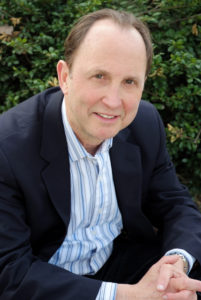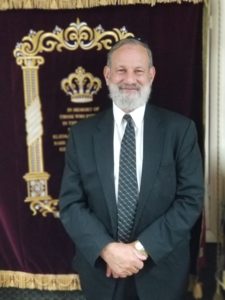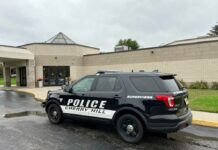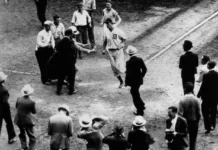
On the morning of Sept. 11, 2001, Rabbi Eliott Perlstein was working at home on his Rosh Hashanah sermon.
After a while, the Ohev Shalom of Bucks County leader decided to take a break, so he walked into the kitchen and flipped on the television.
“The first tower had already fallen,” Perlstein said of the terrorist attack that rocked New York City, the United States and the world that day.
The Conservative rabbi immediately scrapped his sermon. Later that week, he started working on a new one about 9/11 and all the fear, confusion and anger it sparked.
Sept. 11, 2001 was a Tuesday; Rosh Hashanah began less than a week later, on Monday evening.
Many synagogue leaders kept their original sermons for the second day of Rosh Hashanah and Yom Kippur. But on the first full day of the Jewish new year, as they welcomed congregants for the first High Holiday service after the tragedy, rabbis stepped up to their bimahs and embraced their roles.
As Reform Rabbi Elliot Strom explained it, American Jews had watched news, political speeches and geopolitical analysis all week at that point. When Strom, now retired, welcomed his members at Shir Ami in Bucks County that morning, he knew they were turning to religion for something else, something deeper.
“You needed to give it a spiritual focus,” he said. “You needed that ability that religion has to step back and see the larger picture.”
In 2001, Rabbi Aaron Gaber led Conservative Congregation Beth Judah, now Shirat Hayam, a Conservative and Reform shul in Ventnor, New Jersey.
He titled his first High Holiday sermon, “A Eulogy to the World Trade Center.” Gaber started by expressing the raw anger that everybody felt, anger at all the senseless deaths and what ifs.
But then he reminded everyone that they were in this together, and with those outside the Jewish faith, like Christians and Muslims. Finally, he concluded by telling his congregants that they would find the strength to go on.
Gaber said the speech was not difficult to rewrite. Like the rest of the country, he was focusing on and thinking about the tragedy all week. And his message did not have to be complicated.
“Those kinds of sermons write themselves,” he said.
Rabbi Lance Sussman of Reform Congregation Keneseth Israel in Elkins Park lets his speeches write themselves in the moment, saying he prefers to speak extemporaneously.
On 9/11, he was only a month into his tenure at KI after moving from a synagogue in Binghamton, New York. But he knew exactly what to say.
Jews had been through tragedies like this before, and had a deep well of wisdom to draw from. It was a moment of uncertainty, and at such moments, our people lean into sources of strength, Sussman said.
“Faith is a source of strength. Family is a source of strength. Friendship is a source of strength,” the rabbi said that day.
But not all temple leaders were so comforting.

Rabbi Yitzchok Leizerowski leads the Orthodox Congregation Bais Medrash Harav B’nai Jacob in Philadelphia. On the morning of 9/11, as he watched the towers fall on TV, he had an unsettling realization about American power.
And then, on Rosh Hashanah morning, he shared it with his congregants.
“God sent a great message to us in America,” Leizerowski said. “Things are not the way you think they are.”
Leizerowski went on to say that God does not punish us for no reason.
“There’s room for improvement,” he said.
Looking back, the Orthodox rabbi believes he hit the mark. Other rabbis, though, aren’t so sure about their messages.
Strom said that, unless people reach out after, it’s hard for rabbis to ever really know if their words resonate. But after 9/11, they at least knew one thing: People were listening.
On the day of the attacks, Ohev Shalom in Richboro saw more than 100 people show up for its Tuesday evening service. Usually, according to Perlstein, only 12-15 members attended evening services.
Two nights later, Ohev hosted an impromptu service for congregants to come together after the tragedy. More than 600 people walked through the doors.
On the first anniversary of 9/11, Sussman organized a memorial gathering at KI. More than 3,000 people came, filling both the sanctuary and the hallways.
“The entire community came together,” Sussman said.
[email protected]; 215-832-0740






